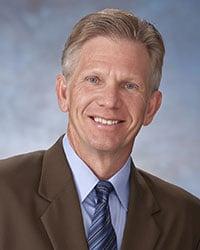Guy Phillips first ran for the Scottsdale City Council in 2010. That was the year of the Tea Party. With little money Phillips, a rock-ribbed Republican, rode the wave to a surprisingly strong finish, albeit unsuccessful.
 But he didn’t give up. Two years later he won. Now, Scottsdale City Councilman Guy Phillips is up for re-election.
But he didn’t give up. Two years later he won. Now, Scottsdale City Councilman Guy Phillips is up for re-election.
During his first term has played an undeniable role restricting spending via opposition to city bond proposals, a position that surely resonates with activist Republican Partiers. But two positions he’s adopted of late must leave even ardent supporters scratching their heads.
The long-discussed “Desert Discovery Center” has been a political hot potato with influential tourism leaders arguing its necessity while most voters in Scottsdale disagree with either putting such an enterprise within the preserve, or spending more taxpayer dollars on it when so much has been spent up north already.
That’s what made Phillips’ flip-flop on the project last month terribly curious. While not the final decision Phillips voted with the majority to authorize millions for more design and study. Some in his political constituency likely view that as apostasy. But it likely pales in comparison to an issue that is near sacrosanct to Republican primary voters: charter schools.
Phillips has been one of the leads trying to stop Arizona and the country’s top charter school, BASIS, from building a new campus at 128th Street & Shea. The expanded school would enable many Scottsdale families to move from waiting lists to best in class. Yet, Phillips questions the school’s “profit motives,” notwithstanding it is a non-profit, public school. And he appears wholly ignorant of state law allowing such a school proposal to proceed. For an avowed constitutionalist like Phillips one would think respect for state law, even ones he may disagree with, would be part of his political mooring.
A Phillips strength is that he is often a contrarian on the Scottsdale City Council. Democracy doesn’t always demand homogeneity. But it’s noteworthy when Phillips’ contrarianism starts to run contrary to that which he most often espouses, and to those who propelled him to office in the first place.

